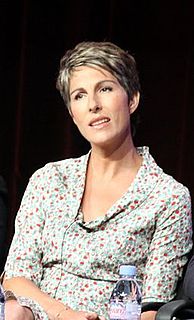A Quote by Carl Honore
Smaller families mean we have more time and money to lavish on each child. Parents are more anxious because small families give them less experience of parenting and put their genetic eggs in fewer baskets.
Related Quotes
The point is that families today are spending their money no more foolishly than their parents did. And yet they're five times more likely to go bankrupt, and three times more likely to lose their homes. Families are going broke on the basics - housing, health insurance, and education. These are the kind of bills that you can't just trim around the edges in the event of a downturn.
When I talk about the ability for fintech to promote kind of economic growth and productive citizens coming in, using different data and being able to lend to small businesses, see those small businesses start to grow - of course, that means more money for their families, you know, the small-business owner families. They start to hire people.
Clearly this is a tough economic time, and a lot of families are hurting. So when we talk to parents, we talk about small changes for kids and things that don't cost extra money. Like adding water and eliminating sugary drinks and sodas. That's going to save money right there. Or adding a few more vegetables.
The whole world population rests on women. You have to start with the woman. And the woman will make her own decisions. If you want to have five or ten children, fine. You can have big families or small families, but you have the family you feel you can afford or feed. In China the one - child policy is already finished - on its way out because the economic conditions end up producing the same effect. If people want an expensive flat in a place like Shanghai, you can't have more than one child or two.































